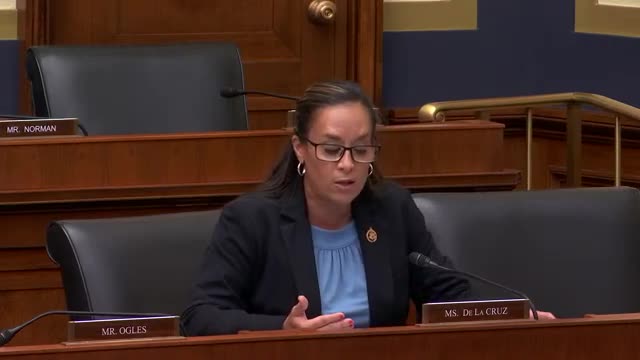Regulatory Overhaul Threatens Banking Sector Stability
September 25, 2024 | Financial Services: House Committee, Standing Committees - House & Senate, Congressional Hearings Compilation
This article was created by AI summarizing key points discussed. AI makes mistakes, so for full details and context, please refer to the video of the full meeting. Please report any errors so we can fix them. Report an error »

During a recent government meeting, concerns were raised regarding the increasing regulatory burden on the banking sector, particularly in light of the Basel 3 framework and its potential implications for the economy. A key discussion point was the cumulative impact of various regulatory proposals introduced since March 2023, including the Basel 3 endgame, Global Systemically Important Bank (GSIB) surcharging, stress testing, and long-term debt requirements.
Regulators were questioned about the absence of a comprehensive analysis of these proposals, which some believe could threaten the vibrancy of the banking sector. One participant noted that the industry had anticipated a detailed review from the Vice Chair of the Federal Reserve, but only a speech was made public, lacking substantive analysis.
The conversation highlighted the need for thorough impact studies, particularly given the capital-intensive nature of sectors like agriculture and energy, which rely heavily on financing from banks. It was emphasized that the current regulatory framework could impose punitive costs on these industries, potentially stifling economic growth.
The discussion also pointed out that while international bodies like the Basel Committee conducted quantitative impact studies on their proposals, U.S. regulators initially opted not to perform similar analyses before implementing the Basel 3 regulations. This decision has raised concerns about the adequacy of understanding the broader economic implications of such regulations.
As inflation continues to rise under the current administration, the urgency for regulators to conduct detailed impact studies has become increasingly apparent, with calls for a more structured approach to evaluating the effects of regulatory changes on the economy as a whole.
Regulators were questioned about the absence of a comprehensive analysis of these proposals, which some believe could threaten the vibrancy of the banking sector. One participant noted that the industry had anticipated a detailed review from the Vice Chair of the Federal Reserve, but only a speech was made public, lacking substantive analysis.
The conversation highlighted the need for thorough impact studies, particularly given the capital-intensive nature of sectors like agriculture and energy, which rely heavily on financing from banks. It was emphasized that the current regulatory framework could impose punitive costs on these industries, potentially stifling economic growth.
The discussion also pointed out that while international bodies like the Basel Committee conducted quantitative impact studies on their proposals, U.S. regulators initially opted not to perform similar analyses before implementing the Basel 3 regulations. This decision has raised concerns about the adequacy of understanding the broader economic implications of such regulations.
As inflation continues to rise under the current administration, the urgency for regulators to conduct detailed impact studies has become increasingly apparent, with calls for a more structured approach to evaluating the effects of regulatory changes on the economy as a whole.
View full meeting
This article is based on a recent meeting—watch the full video and explore the complete transcript for deeper insights into the discussion.
View full meeting